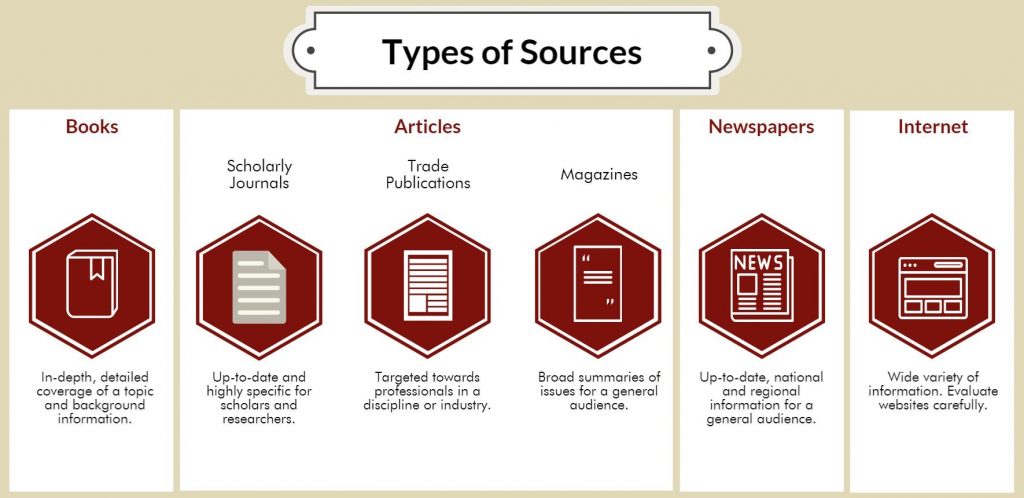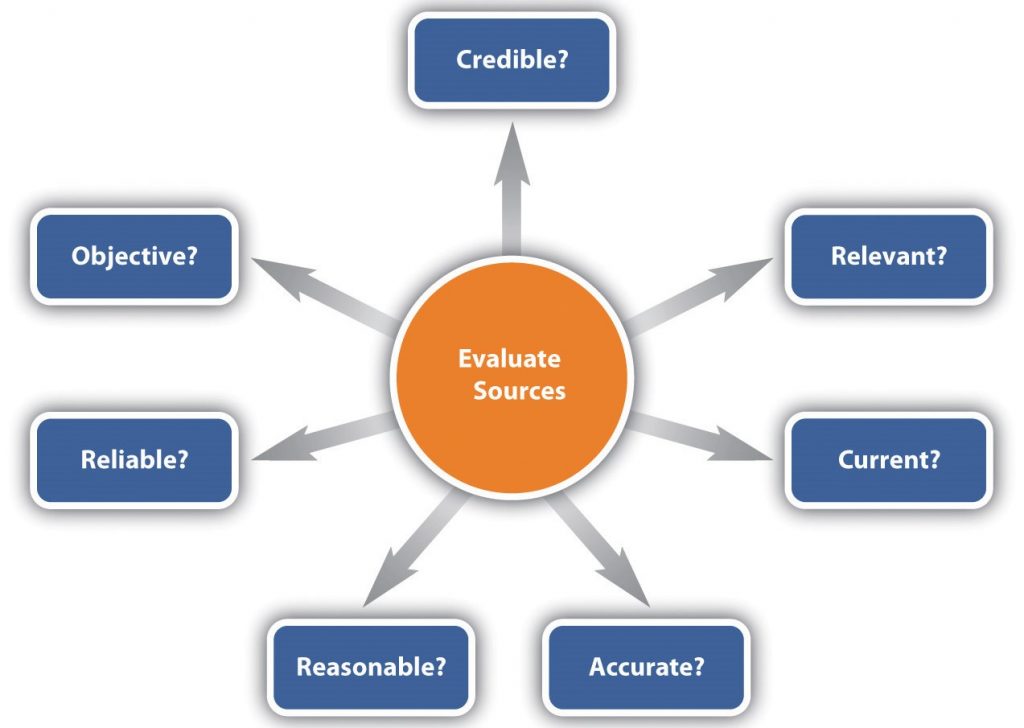The foundation of a strong nursing research paper lies in its evidence base. Choosing credible sources is paramount, not only for the academic integrity of your work but also for the safety and well-being of patients you may encounter in your future practice.
This article will guide you through the labyrinth of information, providing strategies and tips to locate and evaluate credible sources for your nursing research paper.
Understanding the Scope of Your Research
Before embarking on the source hunt, it’s crucial to define the scope of your nursing research paper. Ask yourself:
- What is your research question? A well-defined research question will guide your search and help you focus on relevant information.
- What are your key concepts? Identifying the core ideas of your paper will help you identify relevant sources.
- What is the target audience for your paper? Understanding your audience will influence the complexity and depth of information you need to source.
Exploring the Realm of Academic Databases
Academic databases are treasure troves of scholarly literature specifically tailored for research papers. They provide access to peer-reviewed articles, journals, and books, offering the most reliable and current information for your nursing research paper.
a. PubMed: The go-to database for biomedical and health sciences research, PubMed provides access to a vast collection of articles from MEDLINE, the premier bibliographic database for medical literature. It offers a user-friendly interface with advanced search filters for specific keywords, publication dates, and research types.
b. CINAHL (Cumulative Index to Nursing and Allied Health Literature): Dedicated to nursing and allied health literature, CINAHL provides a comprehensive collection of journal articles, books, and dissertations, focusing on evidence-based practice, clinical care, and nursing research.
c. Cochrane Library: This database focuses on systematic reviews and meta-analyses, providing high-quality summaries of evidence for clinical practice. It is an invaluable resource for finding evidence-based practices and recommendations for your nursing research paper.
d. Nursing Papers: This is an academic writing platform, with a collection of nursing research papers, essays, case studies and dissertation samples that you can readily access for research. Besides, you can also order an original paper from the platform at your convenience.
Expanding Your Search Beyond Academic Databases
While academic databases form the cornerstone of your source search, exploring other avenues can enhance the breadth and depth of your nursing research paper:

a. Government Websites: Federal agencies like the Centers for Disease Control and Prevention (CDC), the National Institutes of Health (NIH), and the Agency for Healthcare Research and Quality (AHRQ) offer reliable information and data relevant to various aspects of healthcare and nursing.
b. Professional Organizations: Organizations such as the American Nurses Association (ANA), the National League for Nursing (NLN), and the Sigma Theta Tau International (STTI) provide resources, research reports, and best practices guidelines related to nursing.
c. Reputable Online Platforms: Websites like the National Library of Medicine (NLM) and the Joanna Briggs Institute provide evidence-based guidelines, systematic reviews, and research summaries relevant to nursing practice.
Evaluating Source Credibility: A Critical Eye
The credibility of your sources is paramount to the integrity of your nursing research paper. Ask yourself these critical questions:
- Who is the author? What are their credentials and expertise in the field? Look for authors affiliated with reputable institutions, universities, or research centers.
- Is the information up-to-date? Check the publication date and ensure the information is relevant to current practice.
- Is the source peer-reviewed? Peer review, a rigorous process where experts in the field evaluate research before publication, signifies the quality and accuracy of the information.
- Is the source unbiased? Be aware of potential biases that may influence the content. Look for sources that present balanced information and acknowledge limitations.
- Does the source cite its own references? This indicates transparency and allows you to trace the information back to its origin, verifying its accuracy and credibility.
Navigating the Web: A Cautious Approach:
The internet offers a vast ocean of information, but navigating it requires a cautious approach. Remember:
- Not all websites are created equal. Be wary of blogs, personal websites, or forums that lack clear credentials or affiliations with reputable organizations.
- Fact-check information. Cross-reference information with reputable sources to ensure its accuracy and credibility.
- Be skeptical of sensational or overly emotional content. Reliable sources will present information objectively and avoid exaggerated claims.
Incorporating Sources into Your Nursing Research Paper
Once you’ve identified credible sources, it’s time to weave them seamlessly into your nursing research paper:
- Use direct quotations sparingly. Paraphrase information in your own words, providing accurate citations to avoid plagiarism.
- Use a consistent citation style. Follow the guidelines provided by your instructor or the journal you’re submitting to. Common styles include APA, MLA, and Chicago.
- Provide a robust reference list. Include full citations for all sources you have used in your nursing research paper.
Continually Evaluate and Refine Your Source Selection:
As you progress through your research process, continually evaluate and refine your source selection. Ask yourself:
- Are your sources supporting your research question? If not, adjust your search strategy to find more relevant and credible information.
- Are you incorporating a diverse range of perspectives? Seek out different viewpoints and research methodologies to provide a balanced and comprehensive analysis in your nursing research paper.
- Are your sources the most current available? Keep up with the latest research findings and ensure your nursing research paper reflects the most up-to-date information.
Examples of Credible Sources for Nursing Research Papers
To illustrate the wide range of credible sources available, here are some examples for common nursing research topics:
a. Patient Safety:
- Source: “Preventing Falls in Hospitalized Patients: An Evidence-Based Review” from the Agency for Healthcare Research and Quality (AHRQ)
- Why it’s credible: AHRQ is a government agency dedicated to improving the quality, safety, efficiency, and effectiveness of healthcare. This publication provides a comprehensive overview of evidence-based practices for fall prevention.
b. Medication Administration:
- Source: “Medication Errors in Hospitals: A Critical Review of Causes and Solutions” from the National Library of Medicine (NLM)
- Why it’s credible: NLM, a part of the National Institutes of Health, provides access to a vast collection of biomedical and health information, including peer-reviewed articles and systematic reviews.
c. Wound Care:
- Source: “Best Practice Guidelines for Wound Care” from the Wound Healing Society
- Why it’s credible: The Wound Healing Society is a professional organization dedicated to advancing the science and practice of wound care. These guidelines provide evidence-based recommendations for wound management.
d. Mental Health:
- Source: “Depression in Adults: An Evidence-Based Review” from the American Psychiatric Association (APA)
- Why it’s credible: The APA is a professional organization for psychiatrists, promoting the prevention and treatment of mental disorders. This review provides a comprehensive overview of depression and its management.
e. Nursing Informatics:
- Source: “Nursing Informatics: An Essential Guide for the 21st Century” from the American Medical Informatics Association (AMIA)
- Why it’s credible: AMIA is a professional organization promoting the use of informatics in healthcare. This publication provides insights into the role of informatics in nursing practice.
A Guide to Accuracy and Clarity in Citing Sources
Citing sources accurately and consistently is crucial for the integrity of your research paper. It not only acknowledges the work of others but also strengthens your arguments and avoids plagiarism. Here are some tips to ensure your citations are precise and professional:
1. Understand the Importance of Citations:
- Giving credit where it’s due: Citations acknowledge the intellectual property of others and ensure proper attribution for their ideas and research.
- Building credibility: Citations demonstrate that your work is grounded in existing research and strengthens the reliability of your claims.
- Avoiding plagiarism: Proper citations distinguish your original thoughts from those borrowed from other sources, preventing accidental or intentional plagiarism.
2. Choose the Right Citation Style:
- Follow the guidelines: Different academic disciplines and journals have specific citation styles. Check your instructor’s instructions or the journal’s guidelines for the required style (e.g., APA, MLA, Chicago).
- Consistency is key: Maintain a consistent style throughout your paper, from in-text citations to the reference list. Inconsistency can detract from the professionalism of your work.
- Utilize citation tools: Software like Zotero, EndNote, or Mendeley can help format citations automatically and keep your reference list organized.
3. In-Text Citations: Signposting Your Sources:
- Signal phrases: Introduce citations with phrases that indicate the source’s stance, such as “according to,” “as stated by,” or “research by.”
- Parenthetical citations: Provide the author’s last name and year of publication in parentheses after the cited information. For example: (Smith, 2023).
- Direct quotes: Enclose direct quotes in quotation marks and include the page number in the citation. For example: “The patient’s well-being should be the primary concern” (Jones, 2022, p. 12).
- Multiple authors: Use all authors’ names for the first citation, then use “et al.” for subsequent citations.

4. The Reference List: Your Comprehensive Source Guide:
- Alphabetical order: List references alphabetically by the first author’s last name.
- Complete information: Provide all necessary details for each source, including author(s), year of publication, title, journal or book name, volume and issue number (if applicable), and page range.
- Consistency: Maintain the same format for all entries in the reference list.
5. Common Citation Mistakes and Solutions:
- Missing information: Ensure you include all necessary details for each source.
- Inconsistent formatting: Use the correct formatting for each citation element (e.g., capitalization, punctuation).
- Unclear author information: Provide the full name of authors or use “Anonymous” if authorship is unknown.
- Misspelled names: Double-check author names for accuracy.
- Missing page numbers for direct quotes: Always include the page number for direct quotes.
- Incorrect date formats: Use the specified date format for your chosen citation style.
- Duplicate entries: Check for duplicate references in your list.
6. Additional Tips:
- Start early: Begin creating your reference list as you research to avoid scrambling at the end.
- Double-check citations: Carefully review your citations for accuracy before submitting your paper.
- Seek help if needed: If you’re unsure about citation formatting or have questions, ask your instructor or consult a style guide.
Example of APA Citation Style
In-text citation:
- (Smith, 2023)
- “The patient’s well-being should be the primary concern” (Jones, 2022, p. 12).
Reference list entry:
- Smith, J. (2023). Title of article. Journal Name, Volume Number, Issue Number, Page Range.
- Jones, A. (2022). Book Title. Publisher.
Accurate and consistent citations are essential for a credible and ethically sound research paper. By adhering to the guidelines of your chosen citation style, using appropriate formatting, and paying attention to common mistakes, you can ensure that your work is properly attributed and reflects the highest standards of academic integrity.

Finding credible sources for your nursing research paper is an essential step in building a solid foundation for your work. By diligently utilizing academic databases, exploring diverse sources, critically evaluating information, and following proper citation guidelines, you can ensure the integrity and reliability of your research. Remember, the knowledge you gain from these sources will not only strengthen your academic standing but also equip you with the evidence-based practices to enhance patient care and safety in your future nursing career.
Get Professional Nursing Research Paper Help
Finding credible sources and citing them correctly in your nursing research paper can be daunting. However, you can easily avoid the stress with professional research paper help from Exemplary Dissertations. We offer customized research paper writing help for undergraduate, Degree, Masters and Doctoral nursing programs. Our writers can also assist you with nursing essays, case studies, thesis and dissertations.

